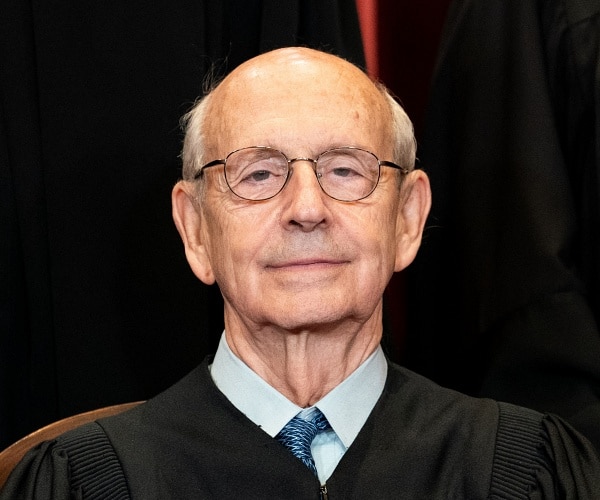Justice Stephen Breyer issued a warning to progressives who want to expand the Supreme Court.
“What goes around comes around. And if the Democrats can do it, the Republicans can do it,” Breyer told NPR in an interview published Friday.
Breyer, 83, has been pressured by progressives to step down so President Joe Biden can replace him with a younger liberal judge.
The court’s oldest member and the senior member of its three-member liberal wing recently said he’s struggling to decide when to retire, and he doesn’t want his replacement to reverse everything he’s done for the last 25 years.
Progressives are angry that the Supreme Court is currently comprised of six justices nominated by Republican presidents and three nominated by Democrat presidents.
Biden has formed a commission to study potential changes to the court.
Democrats again called to pack the Supreme Court with four more members after the justices declined to block a Texas law that makes abortions illegal six weeks after pregnancy.
Breyer, however, said an important part of our democracy has been public acceptance of court opinions that prevail even when many people have disagreed with the decision.
While promoting his new book, “The Authority of the Court and the Peril of Politics,” Breyer cited what former Senate Majority Leader Harry Reid, D-Nev., said about Bush v. Gore when the Supreme Court effectively ruled that George W. Bush had won the 2000 presidential election.
“He said the most remarkable thing about this case is, even though probably half the country didn’t like it at all, and it was totally wrong, in his opinion and in mine, people followed it, and they didn’t throw brickbats at each other and they didn’t have riots,” Breyer told NPR.
Breyer also told NPR he welcomed the resumption of oral arguments at the court, saying it fosters “human interaction.”
“I think it’s better to be there where you can actually see the lawyer and see your colleagues, and you get more of a human interaction,” he said.
“We’re not automatons. We’re human beings, and I believe when human beings discuss things face to face there’s a better chance of working things out. That’s true with the lawyers in oral arguments, and it’s true with the nine of us when we’re talking.”
Breyer did say there were some advantages to the remote arguments during the pandemic because each justice asked questions — even Justice Clarence Thomas, who has gone as many as 10 years without asking a question during the more disorganized oral arguments.
“It stops me from rambling on, and that’s a very good idea,” he said. “And the other very good thing is Clarence Thomas asked questions each time.”




